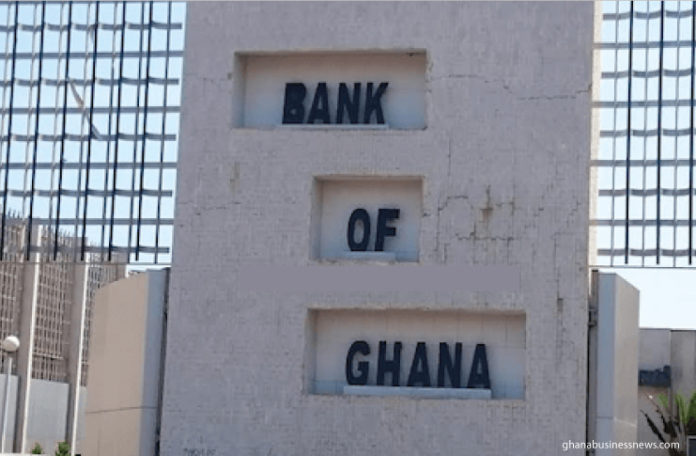The Bank of Ghana has intimated that the rate of interest charged on short-term loans made between banks within the Ghanaian economy has eased marginally.
The interbank interest rate declined from 15.41 percent recorded last year to 13.56 percent in 2021, indicating a year-on-year decline of approximately 1.85 percent.
Banks may decide to borrow money from other banks to ensure that they have enough liquidity or cash for their immediate transactional needs. In a similar vein, banks may lend to their fellow counterparts when they have excess cash on hand.
Moreover, banks are required by the Bank of Ghana which is their regulatory authority to hold enough cash in reserve to accommodate day-to-day withdrawals from their customers. As such to meet such urgent liquidity needs of clients, banks sometimes borrow to cover any shortfall.
Giving further trends on the rates, the Central Bank asserted that at the beginning of 2020 quarter one, the interbank interest rate ranged between 15 – 16 percent.
However, getting to the end of the first quarter last year, that is March 2020, the interbank rates dipped down to hover around 14 percent, then to 13.7 percent in the second quarter, and since then it has kept declining steadily entering the new year.
The downward adjustment of the interbank lending rate can also be attributed to the cut in the monetary policy rate in March 2020 to 14.5 percent from 16 percent and the decision of the Monetary Policy Committee to keep it as such for the rest of the year.
Also, the decrease in the interbank interest rate will not only enable banks to borrow freely, but can encourage investment.
Although, the banks enjoy such reductions, this cannot be passed on to customers. All interest rates for borrowing or saving money that apply to customers of financial institutions are based on the Bank of Ghana’s monetary policy rate.

Moreover, individuals and businesses have raised concerns that the rate at which banks lend to the private sector remains high and as such deters such individuals and businesses from taking loans. Multiple business groups including the Ghana Union of Traders Association (GUTA) have been calling for a reduction in the cost of credit to enable them to be competitive in the sub-region as trading under the African Continental Free Trade Area (AfCFTA) commenced officially on January 1, 2021.
With the current global crises, the economy is still hobbling, coupled with the high cost of borrowing and current inflationary pressures as we are yet to attain pre-pandemic levels whiles there are fears that the resurgence of the virus seems to be more delicate than before.
Despite the improvement in the economy and vaccine optimism, however, analyst have raised concerns about current government borrowings which keep escalating, coupled with all these happenings, may cause lending rates to remain unchanged in the short term.
In conclusion, although banks seem to be enjoying benefits from these interbank rate reductions, individuals and businesses continue to face challenges as lending rates hover around 21.3 percent as at October 2020.





















